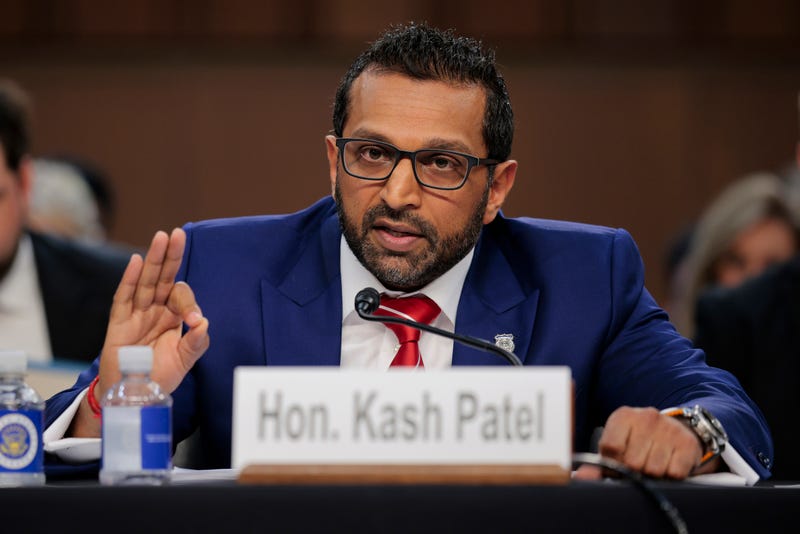
FBI Director Kash Patel is touting his leadership at a Congressional hearing before the Senate Judiciary Committee on Tuesday.
That committee includes Minnesota Democratic Senator Amy Klobuchar who pressed Patel specifically about the effectiveness of an assault weapons ban, and what she is calling rhetoric on both sides following the shooting of conservative activist Charlie Kirk last week.
From the moment Kirk was felled by an assassin’s bullet, partisans have fought over who’s to blame for his death. It's come from places as high as the White House, with President Donald Trump vowing to punish the 'radical left.'
"We’re dealing with a radical left group of lunatics, and they don’t play fair and they never did," said the president.
There's no clear motive yet for the killing of Kirk with the investigation continuing, but there are numerous instances of violence on each side of the political aisle. Klobuchar pointed out a recent study, but then leaned into ways to end the blame game in her questioning of Patel.
"Cato Institute, a conservative think tank, published a study just last week that found terrorists from the right were responsible for six times more deaths than people from the left," Klobuchar said to Patel. "I actually don't want to go tit-for-tat on this, but what I am asking for is that this rhetoric of blaming one side or the other stop. If you could convey that to the president, and that we actually work on things that are solutions. So could you commit to me, Mr. Patel, Director Patel, that you will do that?"
"Absolutely, Senator," Patel quickly responded.
Patel's appearance provides a high-stakes platform for him to try to reassure skeptical Democrats he's the right person for the job at a time of internal upheaval and mounting concerns about political violence inside the United States.
But, in another exchange between Patel and Klobuchar, the Minnesota Senator directly asked Patel about an assault weapons ban, and it was a surprising answer from a member of the Trump Administration.
"Senator, I think there are instances on this legislation that could prevent future attacks, but I’m not going to weigh in to the creation of legislation," said Patel, at least sounding open to what many Democrats have been calling for after a campaign cycle and a summer filled with political violence.
In Minnesota, Gov. Tim Walz and legislative leaders are still trying to work out differences and come together for a special session where Walz would like to see an assault weapons ban. Republicans have been resistant to a ban, despite saying there were ways to work together on gun safety and other issues like mental health resources after the tragic shooting at Annunciation.
Hennepin County Sheriff Dawanna Witt, speaking with WCCO's Adam and Jordana on Tuesday, echoed the thoughts that a ban on high capacity assault-style weapons could help slow down the mass shootings.
"I don't think a ban on assault rifles or high-powered magazines or anything like that will completely stop it," said Witt. "But you can't tell me that it won't slow it down. You know, when we're talking about law enforcement going to these shootings, and you're talking about a matter of minutes sometimes, right? How many shots can be fired with an automatic assault rifle versus a handgun? It's common sense."
There's no sign that in Congress there is any appetite for taking on more gun legislation. Democrats in the House have proposed bills aimed at strengthening gun control, though these measures are unlikely to advance in a Republican-controlled House and Senate.
Patel, backed by Republican lawmakers who signaled their support for him, sought to keep the focus on what he said was a record of accomplishment in fighting violent crime, protecting children from abuse and disrupting the flow of fentanyl. He touted that the man suspected in Kirk's killing was arrested within 33 hours but did not mention that he had created confusion soon after the killing by posting on social media that “the subject” was in custody.
Democrats repeatedly tried to steer the hearing back to the turmoil inside the FBI and suggested his firing of experienced agents and supervisors was a troubling about-face from his confirmation hearing pledge in January that he would not look “backwards” or pursue retribution as director.
